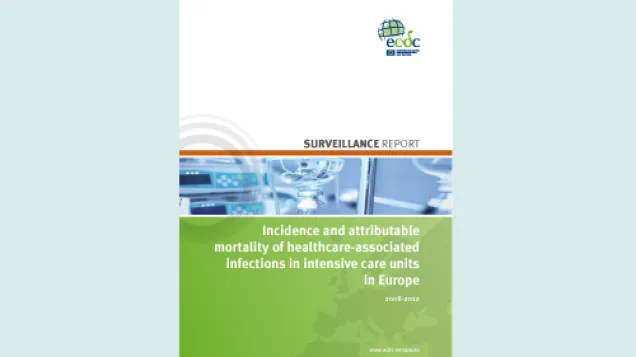Proper hand hygiene can prevent sepsis
Sepsis is a life-threatening clinical syndrome characterised by acute organ dysfunction resulting from infection. It is caused by a dysregulated host response to infection, where the body’s own response to infection causes damage to tissues and organs. Sepsis has long been associated with illness and mortality in healthcare settings, such as intensive care units and emergency departments. Sepsis mortality rates are high - above 25-30%, and between 6 and 9 million people die from sepsis every year worldwide.
Sepsis can occur due to the use of invasive devices such as catheters, and to the increased vulnerability of many patients because of weakened immunity. The new ECDC Annual Epidemiological Report on Healthcare-associated infections acquired in intensive care units shows that the incidence of healthcare-associated infections such as bloodstream infections as well as pneumonia and urinary tract infections is particularly high in intensive care units. These infections are often caused by multidrug-resistant bacteria and commonly complicated by sepsis.
The clinical condition of patients with sepsis can rapidly deteriorate in the absence of appropriate antibiotic treatment. Individuals particularly at risk include people of young or old age, those who suffer from a weakened immune system, or from conditions such as cancer, diabetes, major trauma or burns.
Sepsis is often diagnosed too late, because the clinical symptoms (e.g. raised temperature, increased pulse or breathing rate) and laboratory signs (e.g. white blood cell count) that are currently used for its diagnosis are not specific.
Sepsis can be prevented by proper infection prevention and control measures such as ensuring proper hand hygiene, which can also reduce the need for using antibiotics. Vaccinations in the community against diseases such as measles, influenza and meningitis also reduces the circulation of viruses and organisms that can cause sepsis.
Each year, the World Health Organization (WHO) “SAVE LIVES: Clean Your Hands” campaign aims to bring people together in support of hand hygiene improvement globally on or around 5th May. ECDC welcomes the efforts of the campaign to support healthcare workers in improving hand hygiene in healthcare settings, and to prevent life-threatening healthcare-associated infections. The theme of this year is the prevention of healthcare-associated sepsis by practicing good hand hygiene. .
Share this page


